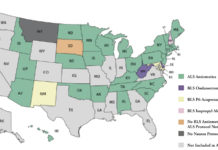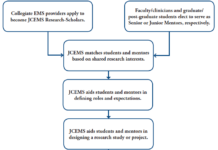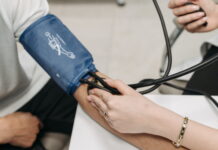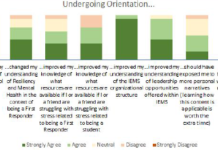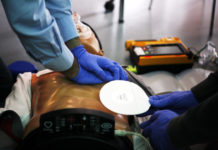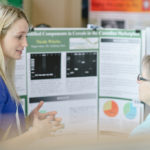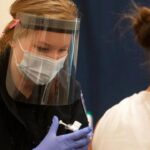Prehospital Antiemetic Therapy in Campus-Based EMS Services
Chuck et al. conducted a cross-sectional analysis of publicly available statewide emergency medical services (EMS) protocols in August 2019 examining the presence of antiemetic therapies at each provider level.
The JCEMS Research Mentorship Program
JCEMS developed a Research Mentorship Program to build research capacity in the collegiate EMS community.
Drug-Facilitated Sexual Assault
Clinical review of drug-facilitated sexual assault in the college environment, health effects of drugs and alcohol in facilitating sexual violence, and proper response and treatment guidelines for collegiate first responders.
The Relative Importance of Vital Signs in Campus-Based Emergency Services
This study examined the vital signs of patients of the University of Texas at Dallas' BLS response team and compared them to established standards of upgrading to ALS.
Predicting Patient Volumes at Collegiate Football Games
Renko et al. create a model to predict patient volumes at collegiate football games to help aid EMS in planning.
Piloting an Online New Member Orientation Program
Illini EMS created and implemented an online Orientation course for new members. Using a combination of original and adapted videos followed by a quiz, this self-paced program teaches and assesses the basics of topics including bleeding control, organizational structure, team dynamics, and First Responder mental health in under an hour.
Research and Scholarship in Collegiate Emergency Medical Services
JCEMS and NCEMSF are spearheading the drive to promote research and scholarship in the field of campus-based prehospital emergency care.
Inside the JCEMS Team
JCEMS is proud to be managed by a team of all volunteers that includes recognized experts in prehospital emergency care as well as student-leaders. Here we offer an inside look at the organizational structure of JCEMS and share opportunities to join the team.
Ambulance Usage on a Collegiate Campus as a Function of Age and Gender
Bradshaw et al. attempt determine if age and gender exert significant influence on a patient’s decision to utilize ambulatory transport to the emergency department.
Illinois Institute of Technology creates on-campus EMS organization with initial focus on community CPR/AED...
Current student Alexandra Montgomery leads the charge to develop a new campus EMS organization.

